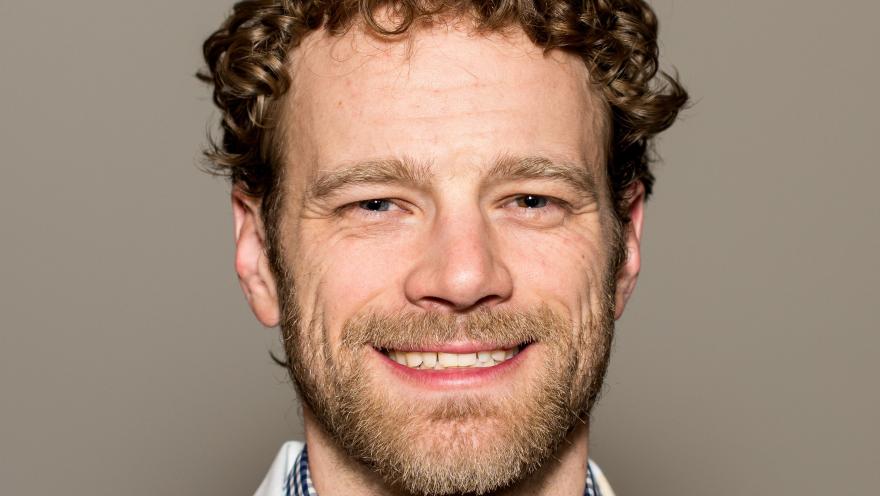Today, we are happy to be joined by ALS clinician-scientist Dr. Peter Creigh from the University of Rochester in Rochester, N.Y., the recipient of the 2018 Clinician Research Training Fellowship in ALS Research. The fellowship is given by The ALS Association, in partnership with the American Academy of Neurology (AAN).
Dr. Creigh is dedicated to improving ALS care by using telemedicine in ALS clinical research. He hopes to make it easier for people living with ALS to participate in research studies.
He says, “Virtual research visits, conducted in individuals’ homes through telemedicine, could potentially enable every individual with ALS, from anywhere, to participate and have a voice in ALS research.”
We recently sat down with Dr. Creigh to learn about his important work and get to know the person behind the white coat.
Why did you choose to join the ALS field and work on ALS research?
Working with individuals with ALS has been the most fulfilling part of my career as a neurologist. While there are currently no treatments that stop disease progression, there are many things that can be done to promote independence, comfort, and quality of life. That said, many unanswered questions and unmet needs remain, which fuel my desire to be involved in research to improve ALS care.
What has the support from The ALS Association meant to you and how will your Clinical Research Training Fellowship push your project forward?
I’m grateful and honored to receive this award from The ALS Association, American Brain Foundation, and American Academy of Neurology. This award will provide me with critical support to develop as a clinician-researcher and advance our understanding of the role of telemedicine in clinical research in ALS. I’m excited and feel privileged to have the opportunity to work with patients and families affected by this devastating disease.
What is your academic background?
I completed my undergraduate studies at Colgate University, where I majored in neuroscience and studied gesture and speech. I gained additional research experience through a summer internship in Biomedical Research at the National Institutes of Health and a two-year Translational Neuroscience Training Program at the University of Pittsburgh.
I then moved to the University of Rochester, where I completed medical school, neurology residency, and two fellowships, one in Neuromuscular Medicine and another in Experimental Therapeutics. I have stayed on as a faculty member at the University of Rochester and now spend my time caring for patients in our multidisciplinary ALS Center and conducting clinical research in ALS and other neuromuscular disorders.
Tell us about your funded research project.
ALS is a devastating disease. Unfortunately, despite significant research effort, there are still only two approved treatments, and neither are very effective. High-quality clinical research is crucial to the discovery of new treatments. However, participating in these research studies can be challenging for individuals with ALS due to impaired mobility, travel difficulties, and caregiver burden.
Conducting “virtual” research visits from individuals’ homes using “telemedicine” instead of in-person visits to research centers is a potential strategy to overcome these challenges. My research will evaluate the feasibility and quality of these “virtual” research visits and determine if they will be a good way to conduct clinical research moving forward.
What is the overall impact of your research on the ALS field and how can it lead to potential ALS treatments?
Individuals with ALS, especially those who are in already underserved parts of the country, are often unable to participate in research due to the challenges associated with traveling to research centers. This limits the ability of individuals, families, and caregivers who are affected by this disease to have an active role and voice in ongoing research, something that is vitally important.
Virtual research visits, conducted in individuals’ homes through telemedicine, could potentially enable every individual with ALS, from anywhere, to participate and have a voice in ALS research.
What do you do for fun?
I try to spend as much time outdoors as I can. I enjoy going for hikes with my dog, alpine and cross-country skiing in the winter, sailing in the summer, and exploring the Rocky Mountains and Adirondacks with friends and family.
Who are your heroes?
My heroes are the many remarkable patients and families I have cared for with ALS who show incredible strength, courage, and passion in the face of such a devastating disease. They are truly inspiring.
Read more about Dr. Creigh here.


Join the conversation. Please comment below.